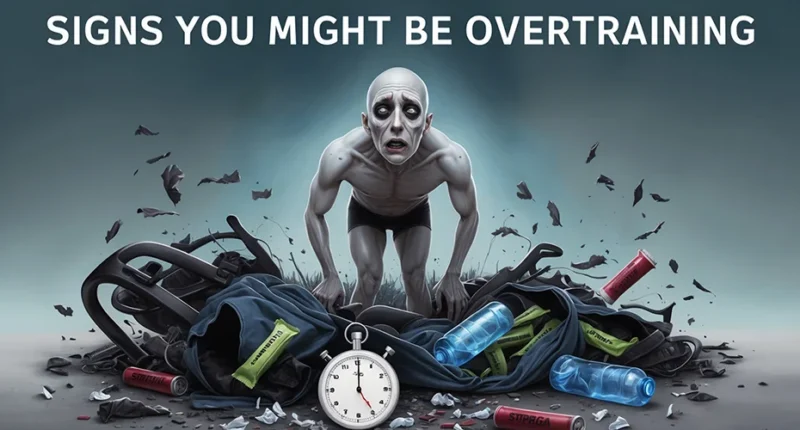Table of Contents
When it comes to fitness, it’s easy to get excited and push yourself harder to achieve your goals. However, overtraining can happen when you do too much exercise without giving your body enough time to recover. Over time, this can lead to negative effects on your health, performance, and mental state. Here are some common signs that you might be overtraining and need to take a step back.
Increased Fatigue
Feeling tired after a workout is normal, but if you’re constantly feeling exhausted even after getting enough sleep, it could be a sign of overtraining. Your body needs rest to repair muscles and restore energy after exercise. If you’re not allowing yourself enough recovery time, your fatigue can start to pile up, making it harder to get through daily activities, let alone your workouts.
Decreased Performance
When you first start working out, you might see quick improvements in your performance, whether it’s lifting heavier weights, running faster, or doing more reps. However, overtraining can cause a dip in your performance. If you start noticing that your strength, speed, or endurance is getting worse, despite your efforts, it’s a sign that your body is not recovering properly, and you might be pushing it too hard.
Persistent Muscle Soreness
Muscle soreness after a workout is common, especially if you’re trying new exercises or increasing your intensity. But if your muscles remain sore for days or if the soreness is unusually painful, it could indicate that you’re overtraining. This prolonged soreness suggests that your muscles aren’t getting enough time to recover, which could lead to injury if not addressed.
Trouble Sleeping
Exercise is supposed to help you sleep better, but overtraining can have the opposite effect. If you find yourself tossing and turning at night or waking up frequently, it could be due to your intense workout routine. Overtraining can elevate stress hormones like cortisol, which can disrupt your sleep patterns. Lack of sleep can further contribute to fatigue, making it harder to recover from your workouts.
Increased Injury Risk
If you’re constantly pushing your body without allowing it to recover, the risk of injury increases. Overtraining weakens your muscles, joints, and ligaments, leaving you more vulnerable to strains, sprains, and stress fractures. If you start noticing frequent injuries or even small aches that don’t seem to go away, it’s a warning sign that your body needs more time to rest.
Changes in Mood
Exercise can be a great way to boost your mood and relieve stress. However, overtraining can have the opposite effect. If you find yourself feeling more irritable, anxious, or depressed, it could be due to overtraining. Your body is under stress, and this can affect your mental health. Additionally, lack of recovery can lead to a decrease in serotonin and endorphins, which are responsible for good mood and overall well-being.
Weakened Immune System
When you push your body too hard without proper rest, your immune system can become weakened. Overtraining can leave you more vulnerable to colds, infections, or illnesses. If you notice that you’re getting sick more often or taking longer to recover from illnesses, it’s a sign that your body is struggling to fight off infections due to overtraining.
Decreased Motivation
While working out should feel motivating and rewarding, overtraining can cause a loss of motivation. If you find that you’re no longer excited to hit the gym or go for a run, it could be a sign that your body is exhausted and in need of a break. Overtraining can lead to burnout, making it difficult to stay motivated and consistent with your workouts.
How to Recover from Overtraining?
If you notice any of these signs, it’s important to take a break and allow your body time to recover. This might mean reducing the intensity or frequency of your workouts or taking a few days off completely. Make sure to get plenty of sleep, stay hydrated, and focus on eating nutritious foods that support recovery. Gentle activities like stretching, yoga, or walking can help ease your body back into movement without overloading it.
In some cases, it might be helpful to consult with a healthcare provider or a fitness professional to create a workout plan that ensures you’re not pushing your body too far. Proper rest and recovery are just as important as exercise itself for long-term progress and health.
Conclusion
Overtraining is a serious concern for anyone who is committed to fitness. While it’s great to challenge yourself, it’s equally important to listen to your body and give it the recovery it needs. If you’re experiencing any of the signs mentioned above, it’s time to slow down and take a break. By respecting your body’s limits and incorporating rest into your routine, you can prevent overtraining and stay on track for long-term fitness success.











